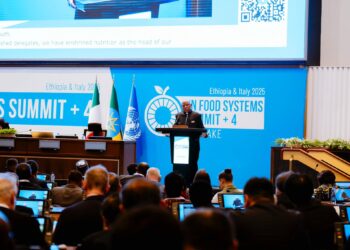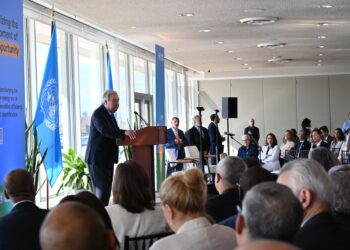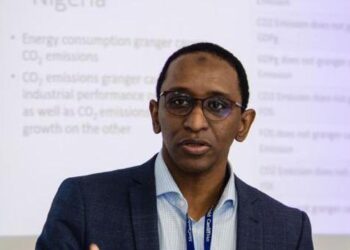The General Manager of Microsoft Nigeria and Ghana, Mr. Abideen Yusuf, has said Nigeria is well-positioned to move beyond “pockets of innovation” to become a major global player in artificial intelligence (AI), provided the right infrastructure and talent development strategies are in place.
Speaking to journalists in Lagos on Tuesday, Yusuf emphasized that AI presents a transformative economic opportunity, with global projections estimating a $15 trillion contribution to the world economy by 2030.
He noted that Nigeria, with its growing tech ecosystem and youthful population, has a unique chance to shift from being a consumer of AI solutions to becoming a producer of world-class AI technologies.
“True economic growth will come from making this technology widely accessible across the country. We must invest in both a strong AI ecosystem and an AI-ready workforce,” he said.
Lagos demonstrating Nigeria’s capacity
According to him, Lagos has already demonstrated Nigeria’s potential for innovation, serving as a leading tech hub with rapid growth in startups and venture capital.
- However, Yusuf argued that national success will depend on building out essential infrastructure, such as reliable power and data centres, to support AI deployment across sectors.
- He highlighted Microsoft’s investments in Nigeria’s digital infrastructure, including the development of Africa’s first Microsoft data centers and edge nodes within the country.
- These assets, he said, will enable faster networks and better access to cloud services, both of which are critical for supporting AI applications at scale.
- Yusuf also stressed the importance of public-private partnerships to accelerate progress.
- He pointed to collaborations between government agencies and private organisations like Microsoft as vital to expanding digital ecosystems and unlocking the full potential of local data.
The need for skilled force
But infrastructure alone is not enough. Yusuf said a skilled workforce is crucial to successfully adopting and deploying AI solutions.
With Africa projected to host 42% of the world’s youth population by 2030, he believes Nigeria has a demographic advantage that can fuel the continent’s digital transformation.
He commended initiatives such as the Federal Ministry of Communications, Innovation and Digital Economy’s 3 Million Technical Talent (3MTT) programme, which seeks to create two million digital jobs, as a step in the right direction.
He also cited Microsoft’s partnership with the Wootlab Foundation to deliver targeted AI training programs as an example of how collaboration can help bridge the AI skills gap.
“Our ability to harness AI for inclusive economic growth hinges on both our infrastructure and our people. With the right focus, Nigeria can become a global leader in AI innovation,” Yusuf said.
What you should know
The Ministry of Communications, Innovation, and Digital Economy recently released Nigeria’s National Artificial Intelligence Strategy document, which is currently being reviewed by MDAs, following which it would be adopted as a national policy to guide all government efforts in AI.
- The government has also formed the AI Collective, which will collaborate on research, projects of interest, hackathons, and seminars to develop an inclusive approach to Nigeria’s AI initiatives.
- Aside from the AI Strategy, the Nigerian government recently launched its Large Language Model, which is expected to position the country as an AI leader in Africa.
- According to the Minister of Communications, Innovation, and Digital Economy, Dr. Bosun Tijani, the LLM will be trained in 5 low-resource languages and accented English to ensure stronger language representation in existing datasets for the development of Artificial Intelligence solutions.






















